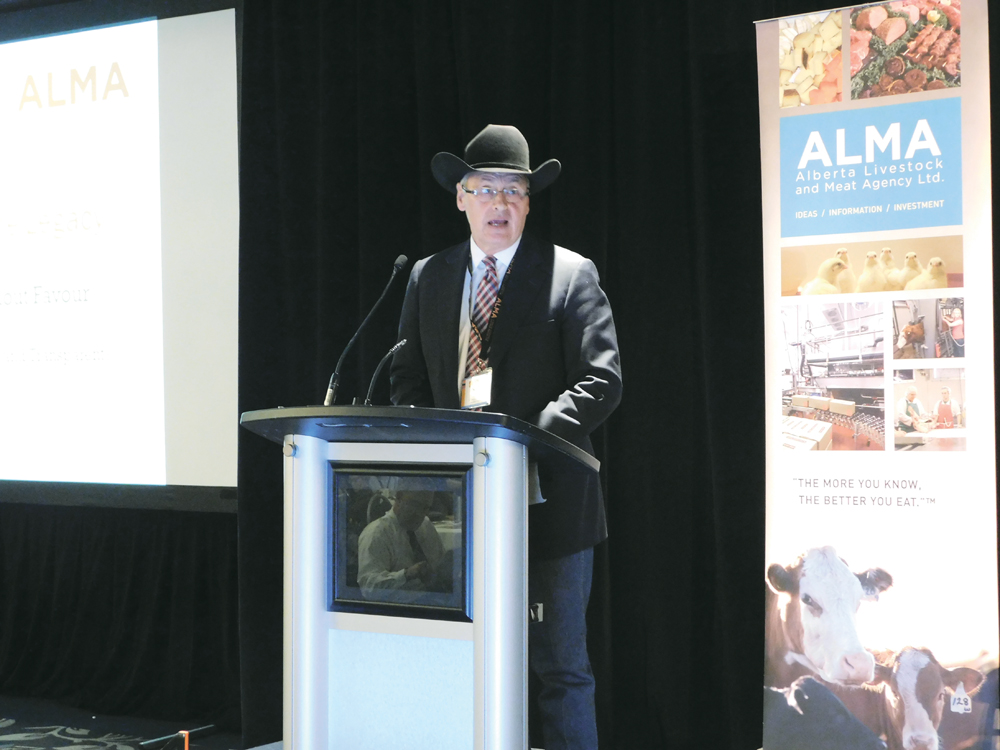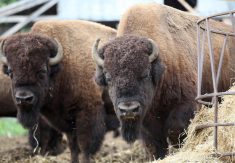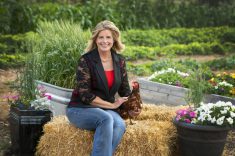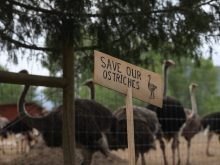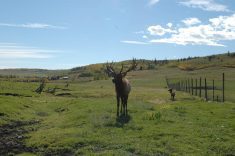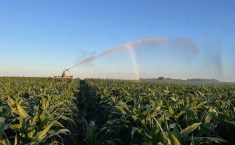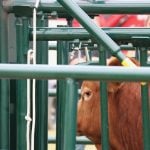The Alberta Livestock and Meat Agency held a final meeting cum celebration before its dissolution at the end of October.
“It’s been a heck of a ride. This is emotional,” ALMA board chair Dave Chalack said to an audience of about 260 industry partners, board directors, and staff at the agency’s last FutureFare conference.
The provincial government announced in April it would dissolve the arm’s length agency that administered funds for Alberta’s livestock and meat sector. Alberta Agriculture and Forestry will begin administering its programs, effective Nov. 1.
Read Also

From winter soil to bountiful crops: Alberta’s ultra-early seeding experiment
Southern Alberta farmers are putting research into practice, pushing ahead traditional seeding times by months for spring wheat and durum.
Since it was created in 2008, ALMA has dispensed about $230 million in government-supplied funds, which it leveraged with contributions from industry, resulting in a total investment of $946 million. The 1,400 projects it funded created about 15,000 jobs, said Chalack, a veterinarian and president of Rocky Mountain Holsteins.
“The agency has been lauded by observers as having a profound effect on the meat and livestock sector in Alberta as well as Canada as a whole,” he said. “As Ted Bilyea, one of the original directors said, ‘The legacy of ALMA will grow with time.’”
In its last full fiscal year, $24.2 million was invested in 195 projects, generating more than $101 million in value for industry. During its existence, its staff worked with every livestock board and commission in Alberta, as well as with many national organizations. Both its employees and CEO Gordon Cove were commended for their professionalism, leadership and collaborative efforts, especially in the last four months, as they worked to transition the agency into Alberta Agriculture and Forestry.
The transition
Many of ALMA’s 25 former staff, including some senior personnel, were recruited to positions at Alberta Agriculture through an open, competitive process.
“That’s of tremendous benefit to us, because of continuity, corporate memory, leadership and activity within the industry,” said John Brown, assistant deputy minister. He estimated that most of ALMA’s former programs should be up and running by mid-December.
ALMA’s three areas of investment — productivity, sustainability, and differentiation — will be continued and Brown said there will be consultations with industry groups around these strategic priorities.
“But for now, the ship is not going to turn around — it’s going to keep going in terms of those areas,” he said. “In terms of programming, what will be delivered will be similar to what you are familiar with.”
Growing Forward 2 programs formerly administered by the agency will now be run by government, including the agri-processing product and market development program as well as the agri-processing automation and efficiency program.
“Those programs will hit the ground running,” said Brown.
Research and development initiatives will be conducted by a business unit in Alberta Agriculture that closely resembles ALMA’s former unit.
“Our target is that by mid-December, we will be functioning and folks will know how we function,” he said.
The industry and market development program will also be similar.
Current recipients of ALMA funds with active projects have received new letters of assignment, while those who submitted funding applications will be notified once government staff have reviewed their proposals.
“We are pushing for mid-December, but certainly by 2017, you will be notified,” said Brown.
A process for future funding applications will be outlined, well defined and communicated to industry, he said.
The one department within ALMA that has not been accounted for is the strategic initiatives department.
“We haven’t figured out what to do yet. Give us the time and we’ll sort it out. That one is the greyest from our perspective,” said Brown.


